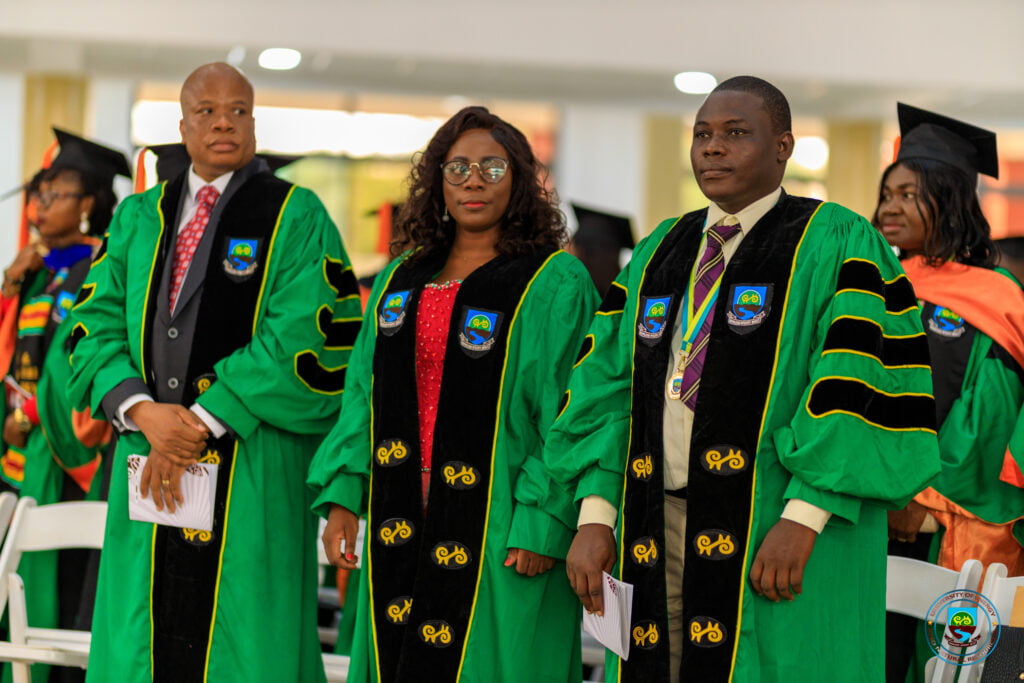
The University of Energy and Natural Resources (UENR) on Friday, August 16, 2024 held its 2nd Special Congregation ceremony for 376 students, under the theme: “Empowering Future Leaders through STEAM Education.” Since its establishment in 2011, UENR has utilized STEAM education as a powerful catalyst for preparing students for the future.
During his address at the ceremony, the Chairman of the University Governing Council, Prof. Kwasi Nsiah-Gyabaah, emphasized that STEAM education fosters a holistic approach to problem-solving. He reiterated the university’s commitment to equipping students with cutting-edge skills across various disciplines, enabling them to develop innovative solutions to challenges like climate change. Prof. Nsiah-Gyabaah congratulated the graduates and highlighted that their training at UENR is designed to arm them with the skills needed to become change-makers, contributing significantly to national development. He further noted that their chosen research topics have the potential to provide lasting solutions to challenges in Ghana’s renewable energy, science, technology, engineering, arts, and forestry sectors.
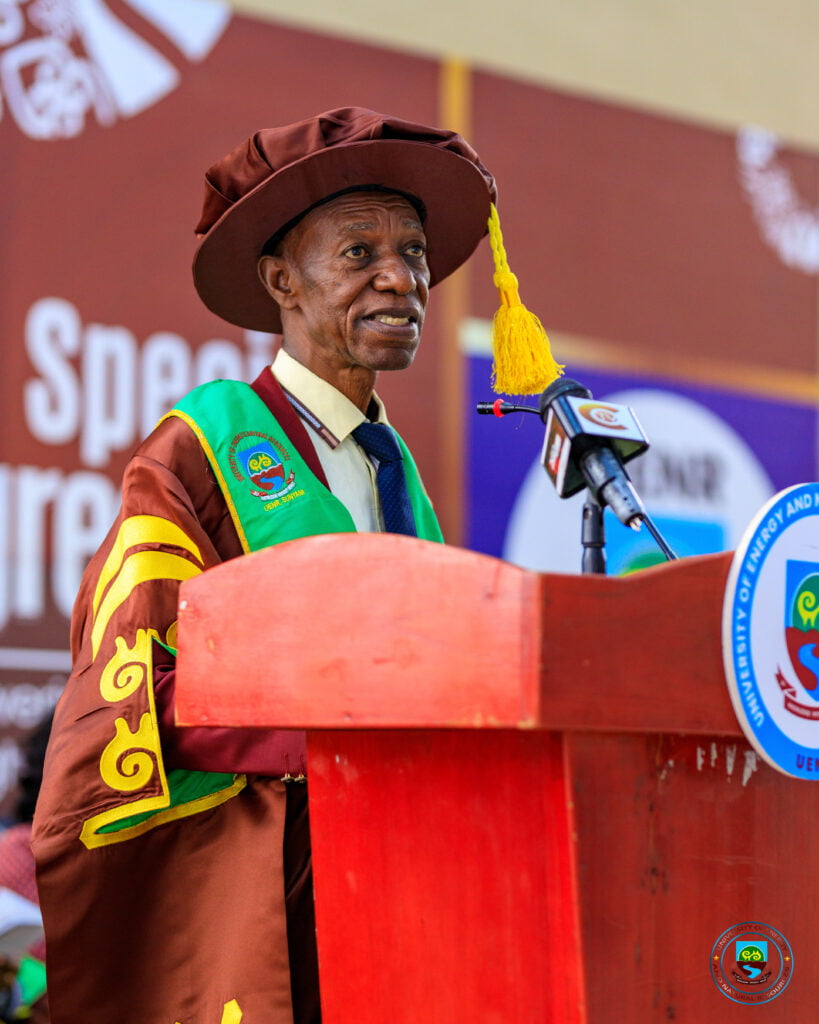
Prof. Kwasi Nsiah-Gyabaah
Ms. Vivian Akoto-Adjepong, a PhD student in Computer Science and a staff of the University, delivered the valedictory address on behalf of the graduating class. She highlighted that the day represented the culmination of years of dedication and perseverance, with the graduates now emerging as scholars, thinkers, and leaders poised to make a meaningful impact on the world. As they transition into the next phase of their lives, she encouraged her fellow graduates to carry forward the lessons learned, the friendships forged, and their unwavering commitment to excellence. She reminded them that true success is measured by the positive impact they have on others. In her closing remarks, she urged the graduates to dream boldly, innovate fearlessly, and lead with integrity and purpose.
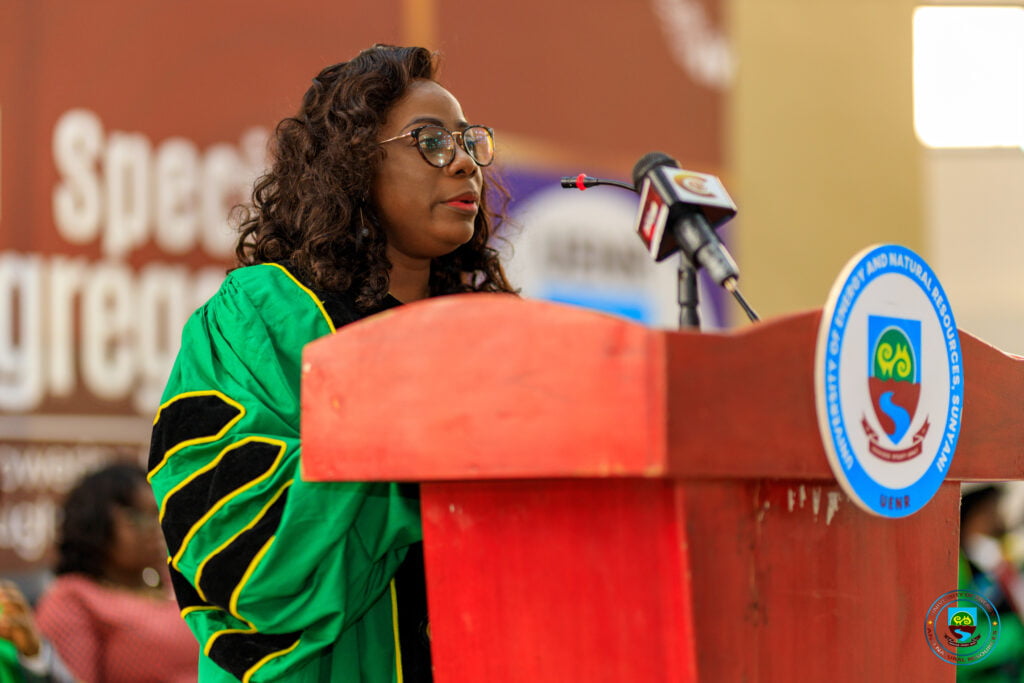
Ms. Vivian Akoto-Adjepong delivering her speech
The Bono Regional Minister, Hon. Justina Owusu-Banahene, who served as the Guest of Honour, commended UENR for promoting STEAM education through its adoption of cutting-edge research, practical training, and community engagement in its curriculum. She praised the university’s approach, stating that it aligns with the government’s agenda of building a self-reliant, innovative, and globally competitive Ghana. Hon. Owusu-Banahene emphasized that by investing in STEAM education, the foundation is being laid for a knowledge-based economy where young people will not only seek jobs but create them. She also reaffirmed her commitment to positioning the Bono Region as a hub for technological advancement and sustainable development. The Minister expressed her dedication to collaborating with educational institutions, local businesses, and communities to foster innovation, and she emphasized that partnerships between academia and industry can translate STEAM education into tangible economic growth for the region.
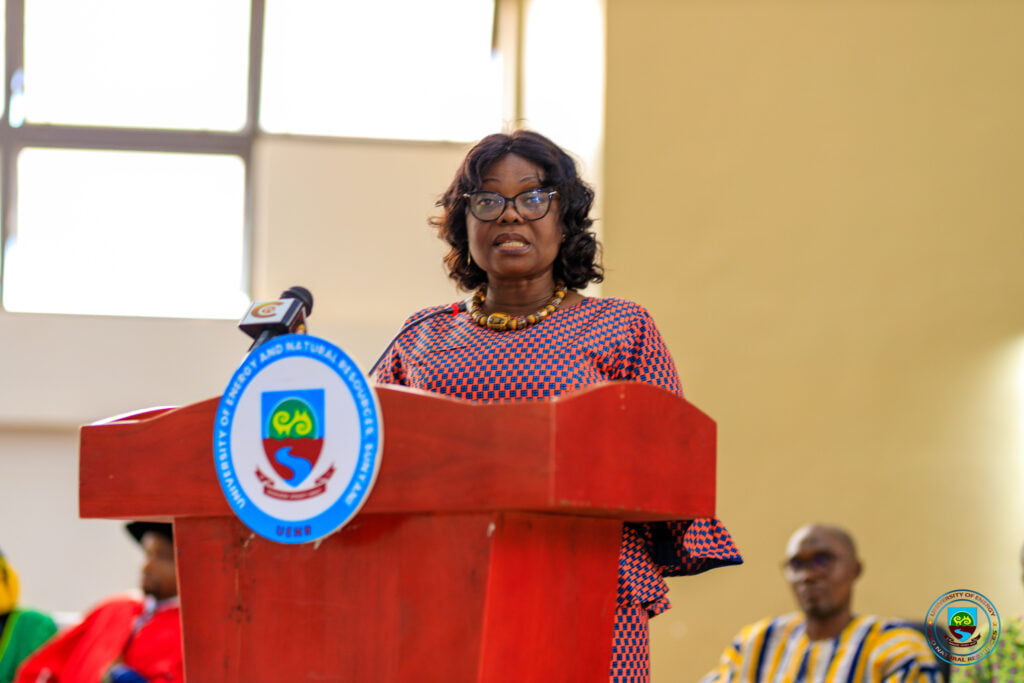
Hon. Justina Owusu-Banahene
In his report, the Vice-Chancellor, Prof. Elvis Asare-Bediako, highlighted the values of discipline, integrity, resilience, and the ability to be change-makers that the university has instilled in its graduates, preparing them to excel globally. He stressed that UENR will continue to train a diverse workforce capable of addressing the major challenges facing not only Ghana but the world at large. Prof. Asare-Bediako also announced that a total of 4,659 students have been admitted into the university for the 2023/2024 academic year, expressing optimism that the graduates will help shape discussions on climate change and contribute a wide range of solutions inspired by their lived experiences.
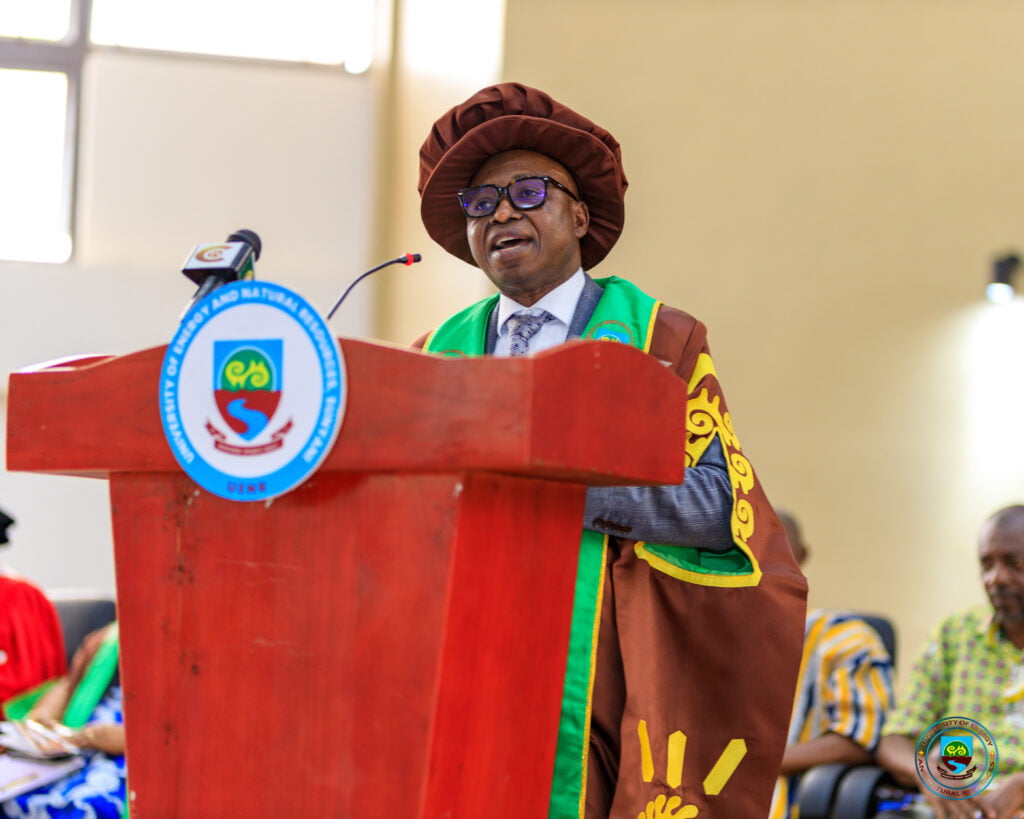
Prof. Elvis Asare-Bediako, Vice-Chancellor
The keynote address was delivered by the Vice-Chancellor of Catholic University of Ghana, Prof. Daniel Kwabena Obeng-Ofori, who urged UENR to position itself to train students capable of exploring the untapped potential of STEAM education. He encouraged the university to adopt new technological trends such as machine learning, ethical Artificial Intelligence, and robotics in its training programs, while also emphasizing the importance of instilling ethical values.
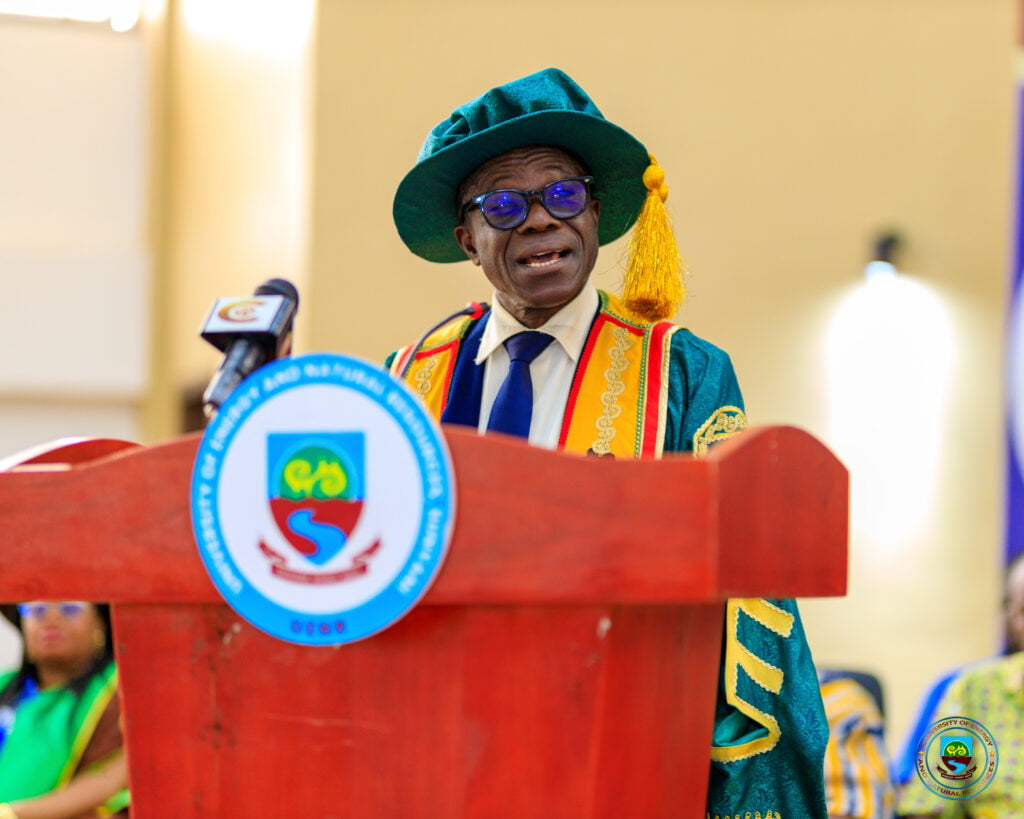
Prof. Daniel Kwabena Obeng-Ofori
In total, 376 students received various degrees, including 289 undergraduates, 55 postgraduates, and 32 diploma students. The ceremony was attended by parents, friends, and well-wishers, who gathered at the Bank of Ghana Auditorium in UENR to celebrate the graduates’ achievements.
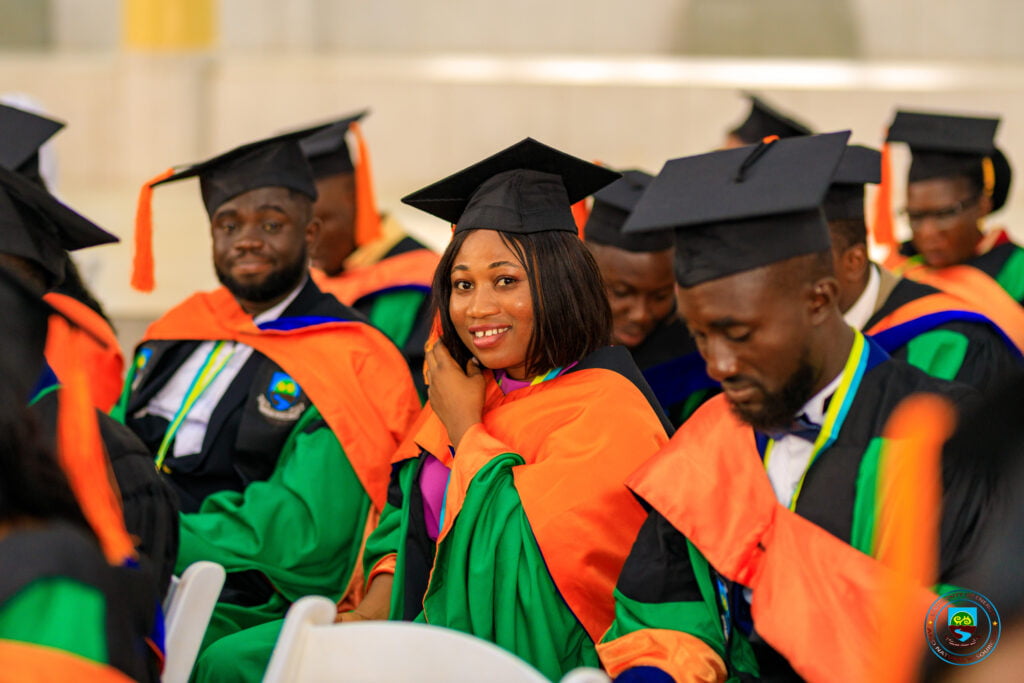
Cross-section of graduands







